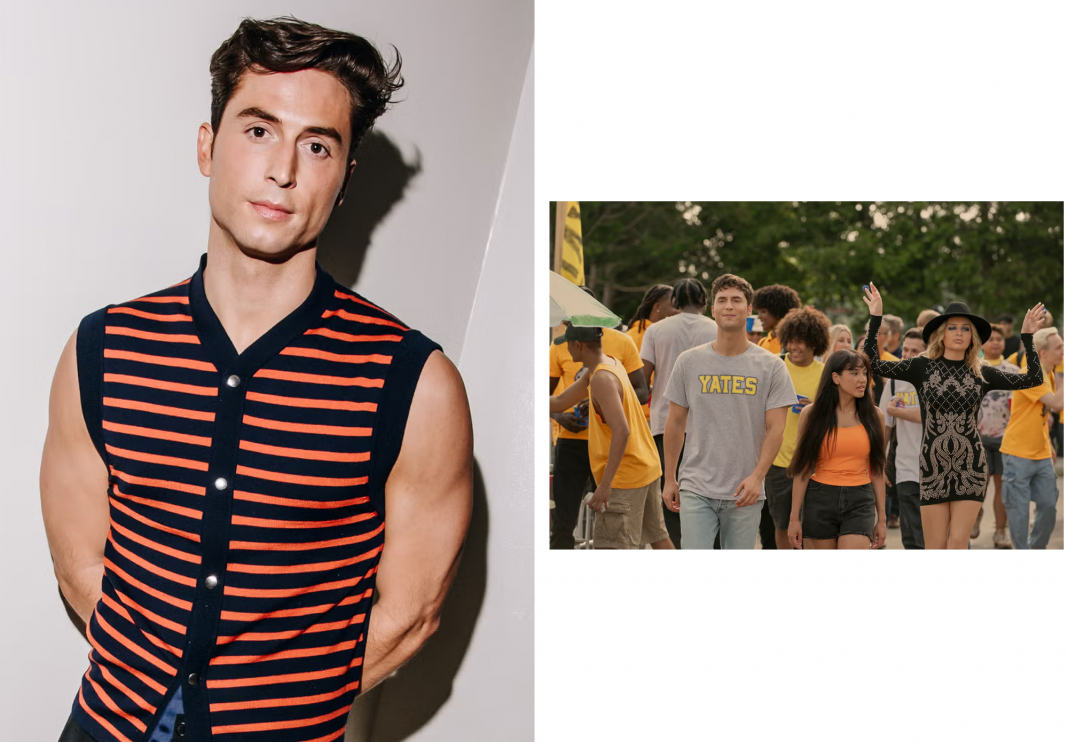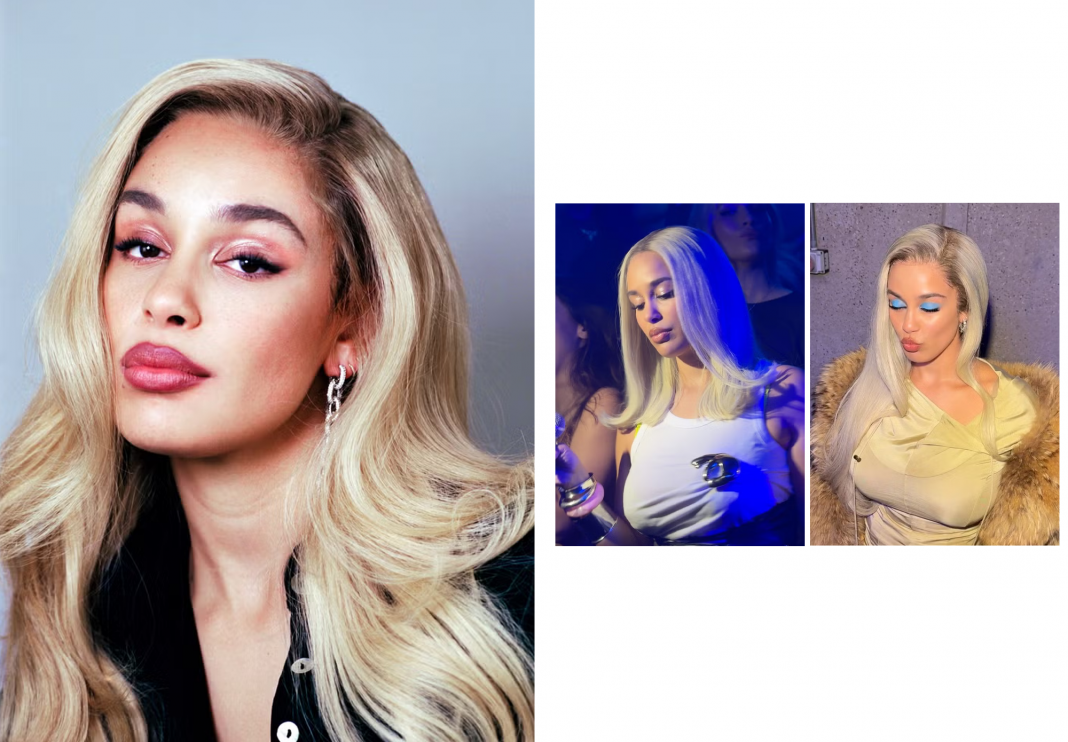From viral Instagram impersonations to writing and starring in his own semi-autobiographical series, Benito Skinner has turned awkward truths into comedic gold. His new Prime Video show, Overcompensating, dives headfirst into the chaos of coming out—and the messy, hilarious journey of discovering who you really are.
From Benny Drama 7 to showrunner
Before Overcompensating became one of the most anticipated queer shows of the year, Benito Skinner was already a digital phenomenon. Under the handle BennyDrama7, he rose to fame with Instagram sketches—campy, uncanny impressions of celebrities and original characters that blended drag, absurdity, and emotional truth. These sketches, especially his portrayal of Deliverance Richards, the over-the-top LA realtor, became pandemic-era comfort food for a generation seeking both laughs and representation.

Now, Skinner has graduated from quick-hit comedy to long-form storytelling. Overcompensating, produced by A24 and streaming on Prime Video, follows Benny, a closeted college freshman navigating frat culture, messy hookups, and internalized shame. Skinner wrote, created, and stars in the series—a project six years in the making. The result is a raw yet riotous exploration of identity, performed with just enough cringe to sting and just enough heart to heal.
A coming out story that isn’t clean
What sets Overcompensating apart from other LGBTQ+ narratives is its embrace of imperfection. Benny isn’t a sanitized hero. He lies, self-sabotages, and clumsily lashes out at the very people trying to support him. The show doesn’t shy away from the darker parts of closeted life—internalized homophobia, toxic masculinity, and the complicated dynamics between gay men who “pass” and those who don’t.

Skinner admits the storyline is deeply personal. “My coming out was so messy,” he reflects. “I didn’t get everything right—but I don’t think you have to.” That vulnerability is present in every episode, especially in Benny’s tense friendship with George, one of the few openly gay students on campus. Their relationship reveals painful truths about visibility, safety, and envy within the queer community. And while the show is packed with bawdy humor and surreal fantasy—think talking posters and awkward frat rituals—it’s also an unflinching confrontation with the closets we build to survive.
The art of playing straight
To embody Benny’s dual identity, Skinner revisited old videos of himself in high school and worked with acting coach Nancy Banks to recapture the physicality of a closeted athlete. “Before any scenes with the boys, I’d just flex everything—like, the tightest butthole and the thickest neck!” he jokes, before admitting the process was both cathartic and haunting. When Benny slips into “Jock Mode,” lowering his voice and dulling his expression, it plays more like horror than comedy—a visual cue of dissociation that will hit home for many viewers.

Set in a vaguely 2013 era—pre-TikTok, pre-Trump—the show draws inspiration from Skinner’s own college experience at Georgetown, reimagined as the fictional Yates University. It’s a world where masculinity and femininity are performed to the extreme, often without question. Skinner, who once staged Britney Spears routines for his family in Boise, Idaho, understands performance better than most. Overcompensating shows how straight culture itself can feel like the original form of drag.
From meme to mainstream
With a cast including Connie Britton, Lukas Gage, and Kyle MacLachlan, plus executive producers Charli XCX and Jonah Hill, Overcompensating has the kind of star power that few internet-born projects can claim. And while Skinner’s boyfriend, Terrence O’Connor, is a known creative force in his own right, Skinner is quick to shut down “nepo-boyfriend” assumptions. He pitched the show to Charli XCX six years ago at a party—long before Amazon got involved.
Skinner’s collaborative instincts have matured, but his obsessive attention to detail remains intact. He still builds mood boards for every character and debates fonts for their laptops. It’s the same perfectionism that once made him fear missing a week of Instagram uploads. That fear has evolved into an ambitious vision: he’s already planned season two. And, if we’re lucky, he might even dust off his wig bin for more sketches in the future.
Cringe, chaos, and closure
At its core, Overcompensating is about learning to forgive your former self—the one who lied, conformed, and stumbled through youth trying to survive. Skinner doesn’t position his present self as a polished, post-closet ideal. Instead, the show suggests that healing includes reconciling with the mess you left behind. It’s a message that resonates far beyond the LGBTQ+ community. Everyone has a version of themselves they’ve tried to hide.
“This show isn’t just about Benny,” Skinner says. “It’s about me finally being myself.” That sentiment lingers long after the credits roll—reminding us that cringe doesn’t cancel growth. It’s just part of the process.






